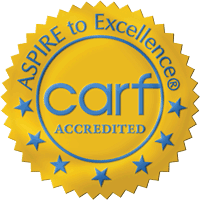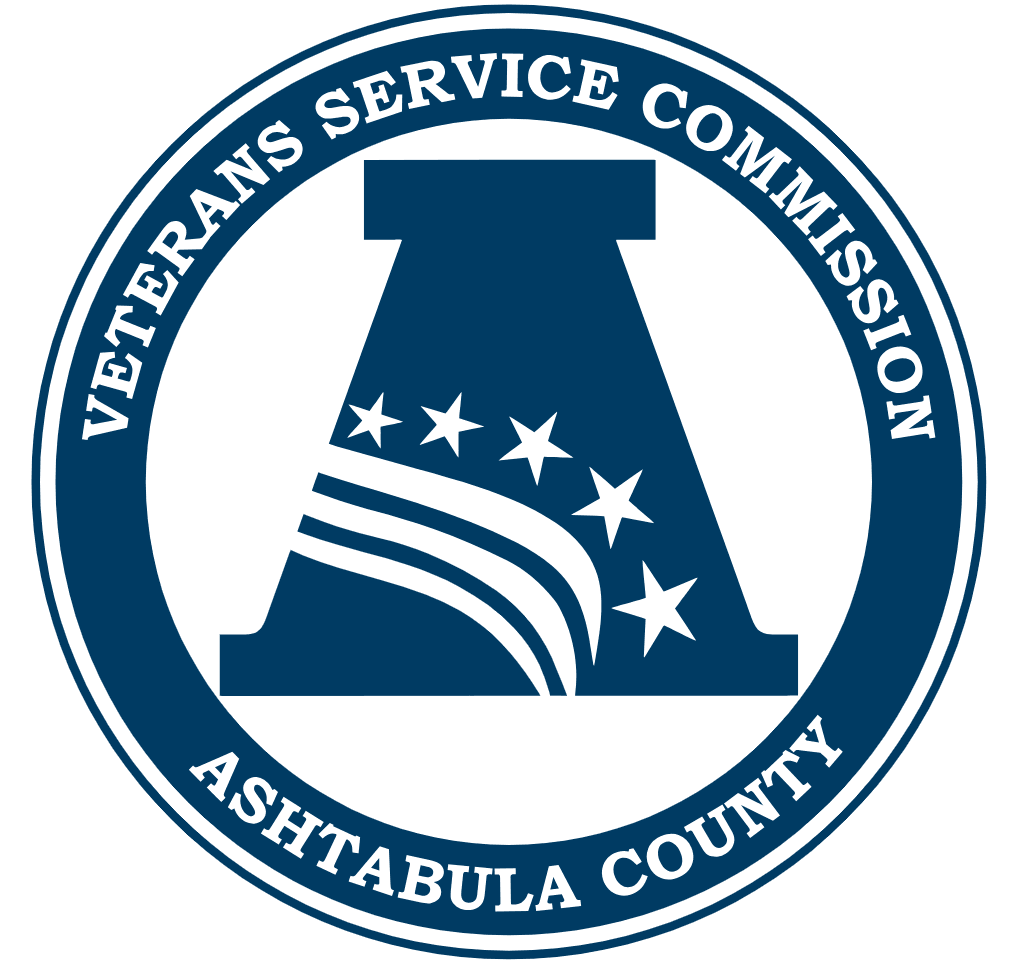Client Rights Policy and Grievance Procedure
It shall be the policy of Ravenwood Health to afford all clients the full spectrum of rights as recipients of our services, to provide all clients with a process by which to address any grievance, and to thoroughly report and investigate any allegation of abuse or neglect.
Policy:
Individuals attending/receiving services for mental health services and/or alcohol and drug addiction from Ravenwood Health (agency) maintain client rights and grievance procedures under Public Law 99-319 (May 23, 1986) Protection and Advocacy for the Mentally Ill Individual Act of 1986, Chapter 119 Administration Rule and Ohio Mental Health and Addiction Services Standards 5122-26-18. They are the following:
Per Ohio MHAS Standards:
5122-2-1-02
5122-26-18
5122-30-22
(1) The right to be treated with consideration and respect for personal dignity, autonomy and privacy;
(2) The right to reasonable protection from physical, sexual or emotional abuse, neglect, and inhumane treatment;
(3) The right to receive services in the least restrictive, feasible environment;
(4) The right to participate in any appropriate and available service that is consistent with an individual service plan (ISP), regardless of the refusal of any other service, unless that service is a necessity for clear treatment reasons and requires the person's participation;
(5) The right to give informed consent to or to refuse any service, treatment or therapy, including medication absent an emergency;
(6) The right to participate in the development, review and revision of one's own individualized treatment plan and receive a copy of it;
(7) The right to freedom from unnecessary or excessive medication, and to be free from restraint or seclusion unless there is immediate risk of physical harm to self or others;
(8) The right to be informed and the right to refuse any unusual or hazardous treatment procedures;
(9) The right to be advised and the right to refuse observation by others and by techniques such as one-way vision mirrors, tape recorders, video recorders, television, movies, photographs or other audio and visual technology. This right does not prohibit an agency from using closed-circuit monitoring to observe seclusion rooms or common areas, which does not include bathrooms or sleeping areas;
(10) The right to confidentiality of communications and personal identifying information within the limitations and requirements for disclosure of client information under state and federal laws and regulations;
(11) The right to have access to one's own client record unless access to certain information is restricted for clear treatment reasons. If access is restricted, the treatment plan shall include the reason for the restriction, a goal to remove the restriction, and the treatment being offered to remove the restriction;
(12) The right to be informed a reasonable amount of time in advance of the reason for terminating participation in a service, and to be provided a referral, unless the service is unavailable or not necessary;
(13) The right to be informed of the reason for denial of a service;
(14) The right not to be discriminated against for receiving services on the basis of race, ethnicity, age, color, religion, gender, national origin, sexual orientation, physical or mental handicap, developmental disability, genetic information, human immunodeficiency virus status, or in any manner prohibited by local, state or federal laws;
(15) The right to know the cost of services;
(16) The right to be verbally informed of all client rights, and to receive a written copy upon request;
(17) The right to exercise one's own rights without reprisal, except that no right extends so far as to supersede health and safety considerations;
(18) The right to file a grievance;
(19) The right to have oral and written instructions concerning the procedure for filing a grievance, and to assistance in filing a grievance if requested;
(20) The right to be informed of one's own condition; and,
(21) The right to consult with an independent treatment specialist or legal counsel at one's own expense.
In addition to the rights listed above, no person will be denied admission to a program due to their use of prescribed psychotropic medications and no employee may be a client’s court appointed guardian or representative if the person is currently receiving services from the agency.
A. PROCEDURE INFORMING CLIENTS OF THEIR RIGHTS:
1. Client rights and grievance procedures will be explained to the client through distribution of written and oral information during the intake process. In addition, staff will explain any and all aspects of the client rights and grievance procedure upon request.
2. In the event of a crisis or emergency situation, the client shall be verbally advised of at least the immediate pertinent information, such as his/her right to consent to or refuse the offered treatment and the consequences of that agreement or refusal. The procedure set forth above should be followed in the next subsequent meeting, if any.
3. All staff involved with the operation of the agency’s programs will receive and review the Client Rights and Grievance Procedures and shall be familiar with them. There shall be documentation in the personnel file that agency staff including contract staff, volunteers and student interns has received a copy of the client rights policy and the client grievance procedure and has agreed to abide by them. A copy of the Client’s Rights and Grievance Procedures will remain electronically available for agency staff accessibility. Copies will be given to any entity upon request.
4. A copy of the Client Rights Policy and Grievance Procedure shall be posted in the lobbies of each agency office site and group treatment rooms.
5. Agency staff, including administrative and support staff, will be educated concerning and familiar with the Client Rights and the Grievance Procedures. A copy of staff orientation to the Client Rights and the Grievance Procedures will be held in the staff’s personnel file. As such, any staff can direct a person who is articulating a concern, complaint, or grievance to the Client’s Rights Office/Client Advocate and advise them on their right to file a grievance.
GRIEVANCE PROCEDURE:
1. Grievances will be filed within 30 days from the date the grievance occurred. Grievances will be made to the Client’s Rights Officer/Client Advocate or designated alternate. In the event of the Client’s Rights Officer/Client Advocate is the subject of the grievance and/or is not available, the designated alternate shall act in the place of the Client’s Rights Officer/Client Advocate.
a) The complaint can be initiated either verbally or in writing by a client or by any other person or provider on behalf of a client regarding denial or abuse of any client’s rights;
b) The grievance must be put into writing, signed and dated by the client, or signed/dated by the individual filing the grievance on behalf of the client, or have an attestation by the client advocate that the written grievance is a true and accurate representation of the client’s grievance.
c) The grievance must include;
- The date the grievance occurred
- Approximate time
- Description of the incident
- The names of individuals involved in the incident/situation being grieved.
Ravenwood Health’s Client’s Rights Officer is the following:
GEAUGA LOCATION:
Autumn Rain Danes
Client’s Rights Officer/Client Advocate
Ravenwood Health
12557 Ravenwood Health
Chardon, OH 44024
Phone #: (440) 285-3568 x 245
Hours of Availability: Monday-Friday 8:00 am – 4:00 pm
ASHTABULA LOCATION:
Jennifer Cleveland
Client’s Rights Officer/Client Advocate
Ravenwood Health 2801 C Court
Ashtabula, OH 44004
Phone #: (440) 998-4210
Hours of Availability: Monday-Friday 8:00 am – 4:00 pm
Ravenwood Health’s Client’s Rights Officer Alternates are the following:
GEAUGA LOCATION:
Michelle Doehring
Client’s Rights Officer/Client Advocate Alternate
Ravenwood Health – Geauga Independent Apartments
13230 Aquilla Rd
Chardon, OH 44024
Phone #: (440) 286-4994
Hours of Availability: Monday, Tuesday, Wednesday and Friday 12:00 pm – 8:00 pm, Thursday 9:00 am – 5:00 pm
Robert Brocious
Client’s Rights Officer/Client Advocate Alternate Ravenwood Health
12557 Ravenwood Health
Chardon, OH 44024
Phone #: (440) 285-3568 x 221
Hours of Availability: Monday-Friday 8:00 am – 4:00 pm
ASHTABULA LOCATION:
Jeanette Maldonado
Client’s Rights Officer/Client Advocate
Ravenwood Health 2801 C Court
Ashtabula, OH 44004
Phone #: (440) 998-4210
Hours of Availability: Monday-Friday 8:00 am – 4:00 pm
2. The Client’s Rights Officer/Client Advocate shall assist the griever as needed. Assistance may include, but is not limited to; writing the grievance, organizing relevant data, investigating the grievance with any person(s), with or without the client present, making any necessary investigations to obtain data relevant to the situation, form any committee deemed necessary to investigate the allegations and provide reasonable opportunity for all relevant information to be heard.
3. The Client’s Rights Officer/Client Advocate will provide a written acknowledgement of receipt of the grievance and provide said documentation to each grievant within three working days. The written acknowledgement shall include, but may not be limited to, the following:
a) Date the grievance was received
b) Summary of grievance
c) Overview of grievance investigation process
d) Timetable for completion of investigation and notification of resolution
e) Treatment provider contact name, address and telephone number
All grievance documentation, including a copy of the grievance, will reflect the process used and resolution/remedy of the grievance and of extending the time period for resolving the grievance beyond twenty calendar days.
4. The Client’s Rights Officer shall advise the President and CEO (or designee that will act on their behalf when unavailable) that a grievance is in process the same day grievance procedure begins.
5. Within 20 calendar days of receiving the grievance, the agency will make a resolution decision on the grievance. Any exceptions that cause this time period to be extended will be documented in the grievance file and written notification will be given to the client or persons filing the grievance on the client’s behalf.
6. If the grievance cannot be resolved immediate (within 2 business days), the client and the Client’s Rights Office/Client Advocate or alternate will meet with either the President and CEO, a special committee, Board Representative, and/or other impartial decision makers to resolved the problem and to plan for any additional steps which must be taken for resolution. The Client’s Rights Officer/Client Advocate or alternate will keep the client or his/her representative informed of all activities which occur as they occur, in the resolution of the grievance and will receive a release of information from the client as needed.
7. The agency shall maintain for at least two years the record of grievances which shall include a copy of the grievance, documentation of the grievance resolution/remedy of the grievance and the processes used, documentation, if applicable, of extenuating circumstances for extending the time period for resolving the grievance beyond 20 calendar days, and a copy of the letter to the grievant reflecting the resolution.
8. On a quarterly basis, the Client’s Rights Officer/Client Advocate, via the Risk Management Director, will report to the President and CEO a summary of the grievances filed for that last year. The President and CEO will report to the agency Board on client rights issues. This information is also disseminated to the county mental health board.
9. Each agency shall provide for the Client’s Right’s Officer/Client Advocate to take all necessary steps to assure compliance with the grievance procedure.
10. Clients have the right to file a grievance with Ravenwood Health and/or with any of the following listed organizations. The client is advised that any appeal to the resolution may also be filed with the organizations listed;
The Joint Commission
Attention: Office of Quality and Patient Safety
One Renaissance Boulevard Oakbrook
Terrace, IL 60181 (800) 994-6610
Fax: (630) 792-5636
https://www.jointcommission.org
Email: patientsafetyreport@jointcommission.org
Disability Rights Ohio
200 Civic Center Drive
Columbus, OH 43215
Phone: (614) 466-7264
Toll Free: (800) 282-9181
Geauga Community Board of Mental Health and Recovery Services
13244 Ravenna Road
Chardon, OH 44024
Phone: (440) 285-2282
Ohio Department of Mental Health and Addiction Services
30 East Broad Street
Columbus, OH 43215-3430
Phone: (614) 466-2596
Toll Free: (877) 275-6364
United State Department of Health and Human Services Office for Civil Rights
233 N. Michigan Ave., Suite 240
Chicago, Illinois 60601
Customer Response Center: (800) 368-1019
Office of Attorney General Medicaid Intake Officer
150 E Gay Street 17th Floor
Columbus, OH 43215
Fax: (877) 527-1305
Ohio Department of Health Health Equity Office
246 North High Street, 7th Floor
Columbus, OH 43215
Phone: (614) 466-3543
Ohio Board of Nursing
17 South High Street, Suite 660
Columbus, OH 43215-3413
Phone: (614) 466-3947
Ohio Civil Rights Commission
30 East Broad Street, 5th Floor
Columbus, OH 43215
Phone: (614) 466-5928
Ohio State Board of Psychology
77 South High Street, Suite 1830
Columbus, OH 43215-6108
Phone: (614) 466-8808
Toll Free: (877) 779-7446
Ohio Psychiatric Physicians Association
3510 Snouffer Road, Suite 101
Columbus, OH 43235
Phone: (614) 763-0040
State Medical Board of Ohio
30 East Broad Street, 3rd Floor
Columbus, OH 43215-6127
Phone: (614) 466-3934
Ohio Governor’s Council on People with Disabilities
400 East Campus View Boulevard
Columbus, OH 43235-4604
Phone: (614) 438-1391
The Ohio Counselor, Social Worker and Marriage and Family Therapist Board
77 South High Street, 24th Floor, Room 2468
Columbus, OH 43215-6171
Phone: (614) 466-0912
Ohio Recovery Housing
35 E. Gay Street, Suite 401
Columbus, OH 43215
Phone: 614-228-0747
Geauga County Board of Mental Health and Recovery Services
13244 Ravenna Road
Chardon, OH 44024
Phone: (440) 285-2282
B. RIGHTS AND RESPONSIBILITIES OF THE CLIENT’S RIGHTS
OFFICER/CLIENT ADVOCATE
The President and CEO shall approve the assignment of the Client’s Rights Officer and an alternate. The Client’s Rights Officer is authorized by the President and CEO to make any and all necessary investigations into the grievance on behalf of the client. Activities carried out by said officer and the results of any such activities shall not in any way effect the employment of said officer.
1. The Client’s Rights Office and the alternate shall be knowledgeable and familiar with the Client Rights Policy and all supporting procedures.
2. The Client’s Rights Officer shall hear all grievances brought to the agency and shall follow all procedures relating to said policy.
3. The Client’s Rights Officer is the official designee of the President and CEO relative to the Client Rights Policy and Procedures and is charged with overseeing and monitoring the same.
4. The Client’s Rights Officer and/or The Risk Management Director is responsible for the ongoing training of staff. Training will include an initial orientation for all new staff, an annual training for all staff and training/information as requested by staff. The Client’s Rights Officer is available to staff for questions on the subject.
5. The Client Right’s Officer is responsible to ensure that all posting as stipulated in policy and its related procedures are proper and in place.
C. PROCEDURE FOR VIEWING OR OBTAINING CONFIDENTIAL MEDICAL RECORDS
1. A client may make a request to see his/her medical record. The request must be in writing and signed and dated. In the event of a minor, the request must be made by the parent or legal guardian. In the event a client is unable to request his/her own information, due to physical or mental impairment, or for any other reason wishes to be represented by another party than a legal guardian, conservator or other legal representative of such, individual shall make a written request. Evidence of legal representation must be present. The release of PHI (protected health information) will be in accordance with HIPAA regulations.
2. After submitting a written request to view medical records, staff will contact the individual within two business days to schedule an appointment to review (if desired) and receive medical records. The appointment shall occur no later than seven business days after staff contact. Requests to review a clinical record will be addressed with the consent of the appropriate clinical supervisor. Clients are encouraged to view a copy of their clinical records with the appropriate mental health professional present. The client (or legal representative) may request and be entitled to a photocopy of all or any part of a medical record. Such copies shall be provided to the client (or legal representative). In the case of absence of the mental health professional, his or her clinical supervisor shall receive the request and respond under the terms of this procedure. If the clinical supervisor is absent, the COO or designee shall so comply.
3. A mental health professional may deny access to a client’s record under the following conditions of Section 106(b)(1)&(2) of Public Law 99-319 dated May 23, 1986:
Except as provided in paragraph (2), an eligible system which has access to records pursuant to section 105(a) (4) may not disclose information from such records to the individual who is the subject of the information if the mental health professional responsible for the supervising the provision of mental health services to such individual has provided the system with written determination that disclosure of such information to such individual would be detrimental to such individual’s health.
A. If disclosure of information has been denied under paragraph (I) to an individual, such individual, the legal guardian, conservator, or other legal representatives of such individual, or an eligible system, acting on behalf of the individual described in subparagraph (B), may select another mental health professional to review such information and to determine if disclosure of such information would be detrimental to such individual’s health. If the mental health professional determines, based on professional judgement, that disclosure of such information would not be detrimental to the health of such individual, the system may disclose the information to such individual.
B. An eligible system may select a mental health professional under subparagraph (A)(iii) on behalf of;
a) an individual whose legal guardian is in the state, or;
b) an individual who has a legal guardian, conservator, or other legal representation other than the State if such guardian, conservator, or representative does not, within a reasonable time after such individual is denied access to information under paragraph (1), select a mental health professional under subparagraph (A) to review such information.
4. If the law of a State prohibits an eligible system from obtaining access to records of mentally ill individuals in accordance with section 1OS(a)(4) of this section shall not apply to such system before;
a) the date such system is no longer subject to such a prohibition; or
b) the expiration of the 2-year period beginning on the date of the enactment of this Act, whoever occurs first.
5. No charge will be made to the client for viewing a medical record or photocopies of said record.
6. The written requests to see a record, date of the client review of the record, and any other relevant information shall become a part of the medical records.
7. When a conflict arises between a child or adolescent and his or her family or guardian concerning his or her car, the following procedure shall be followed;
a) Both parties’ desires shall be documented in the chart.
b) Parental decisions will be final.






